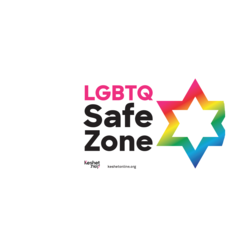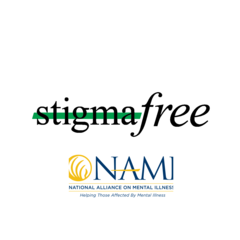Yom Kippur 2009
My name is Richard Stuart McGowan v’Yitzchak ben Avaraham v’Sarah
This little speech is loosely entitled: What’s in a Name?
I am going to break a rule of public speaking and provide many details in a short amount of time. I ask your indulgence.
First is family background. It will indicate a variety of ethnic roots, yet some lack of religious background.
My maternal grandfather, Richard Hawkins, was from Oswego, New York and reportedly from an English Catholic background. I never saw him practice religion.
My maternal grandmother, Lida Gast, was from Dunkirk, New York and a Dutch-American family. I don’t know if she had a religious background and never knew her to practice any.
My paternal grandmother, Mary Higgins, was part of a family that had emigrated from Ireland and they were Catholics. Mary Higgins married a Protestant in Cleveland, Ohio and was pretty much disowned by her family. When her first husband died and she was a widow with two children, she married another Protestant who adopted my father and his brother, and whom I knew as my grandfather.
My grandfather’s name was Stuart McGowan, from a Scots-Irish family involved with an import business in Cleveland. They were both urban and urbane, and, therefore, the farthest thing from stereo-typical Scots-Irish. Neither of these grandparents, Stuart nor Mary, practiced any religion.
An aside: Scots-Irish refers to people, largely from Scotland, who were “planted” in Ulster, Ireland by the English in the seventeenth and early eighteenth centuries, and who eventually emigrated to North America. Protestants in Northern Ireland today do not call themselves Scots-Irish. Only those who emmigrated to North America are known by this name. They were Protestants, mostly Presbyterians. In any case, many Scots-Irish emmigrated to what became the United States before the American Revolution. Many became Appalachians. Today, one can think beautiful and soulful country fiddle, white lightning, story-telling, and NASCAR.
So how did I get to this bimah on Yom Kippur without a particular family religion? In fact it is probably just the lack of religious background that brought me here
My mother did take us to an Episcopal church in Rochester, New York for a couple of years when we were children living in a partly Jewish enclave outside of Rochester. It was the church of the Rochester elite: the ascendancy. And my sister and I got no feel for religion there. Back then the Jewish, Catholic, and Protestant communities did not mix. As you all probably know, there were restricted clubs and other forms of discrimination. However, my sister’s best friend was named Mindy Mermelstein and my early grade-school crushes were with girls not only named Stebbins and Chambers, but girl’s with last names like London and Moyle. There can be something to a name!
So, we eventually moved west.
Fast forward to Lexington, Massachusetts around the year 2000. I was in a very bad job situation, and ready to fulfill my hillbilly dream of becoming an owner-operator of a cross-country 18 wheeler, and, probably, with a beer-belly to go with it.
I had been a Unitarian-Universalist for several years and attended my first minyan after bringing the children from First Parish to a Friday night service here at Temple Isaiah. Jeff Goldberg invited me to minyan the night of the visit. After finding the minyan experience aesthetically pleasant, although not understanding a word of Hebrew, I thought nothing of it until I spent three nights studying “Old Testament” with a Unitarian-Univeristlist minister. I had the inkling that there was more to this. I told Rabbi Gropper that I wanted to come to the Saturday morning Torah service to learn: I had no intention of becoming Jewish. He said, “of course”.
In my opinion, all religion is man-made. Religion and spirituality are mundane affairs in the sense that they have to do with everyday living, here, on this earth, which is something that Judaism addresses very well.
And, it was the people of the Saturday minyan and, later, of Temple Isaiah as a whole, who drew me into the congregation. It was the discovery that the Jewish people, at least locally, allow each other to take issues seriously without self-consciousness, narcissism, and, usually, without competitive attitudes. People speak directly and take themselves and others seriously. Of course there is joking around, but that is secondary to the realization that each and everyone is a human being. Here I realized myself as a nerd, not a brilliant or even smart one, but a nerd all the same. Nobody here flinches at this, even if I don’t have an academic title or am the leader of a big company. Jewish proselytizers take note: There are many of people like me out there. The irony and aloofness that are practiced sometimes by many of us in our society can be important, but they are not sufficient for a life well-led.
I did realize my Jewish identity with the help of my wife, daughter, and Rabbis Gropper, Jaffe, and Alexander. Further, I did not become a truck driver: It became clear to me that not trying further in my chosen field would have been missing the mark, and I am fortunate that that has worked out so far. Irony did play a role here: It was partly the threat to myself that one could make a living in many ways that allowed me to take the independent path within my field. I certainly do not discount other, less self-centered reasons for this happening. This was my journey from Mitzraim.
My religious beliefs are minimal. I have lately become enamored of Baruch Spinoza’s conception of the Causa Sui, or that which causes itself, as God. This is through reading Rebecca Goldstein’s recent book, “Betraying Spinoza”, but any misinterpretations are my own. The Causa Sui is that which must exist, and envelopes everything that is. Spinoza was supposed to have been one of the great seventeenth century rationalists, but his conception of God appears close to the Kabbalist notion of the Ein Sof, that which is without end. That’s as far as I can go into Kabbalist ideas. In the end, I am not one to think in terms of a “personal” God, but a God that envelops all that we experience.
So the theological problem for me is not the existence of God, but our relation to God. This seems to have been the problem for millennia. Judaism, apparently, is the avenue for me to answer this question.
There are other things that I believe, like the very slow progress of the human race. In the end what seems to count is our relation to each other and to the rest of existence, including logic and chesed: knowledge and ztadik, and shalom. God encompasses these things.
Well. In the end, names are both important and not important. For one of those reasons we do not utter God’s name. We only know from Torah that God said to Moses “Ehyeh Asher Ehyeh” (Exodus 3:14).
Thank you.





